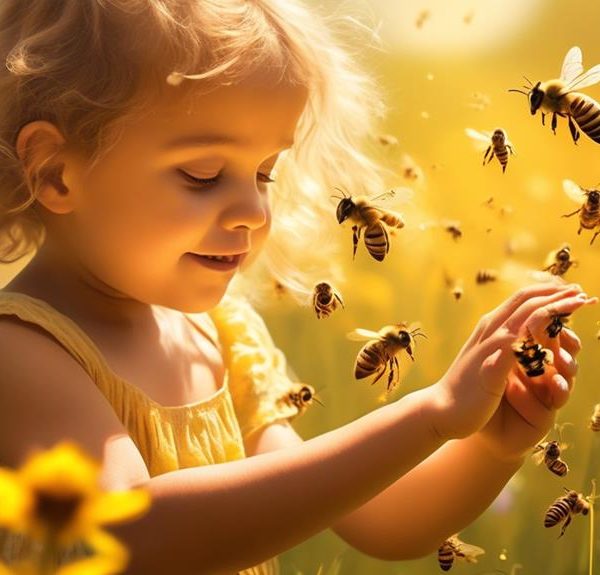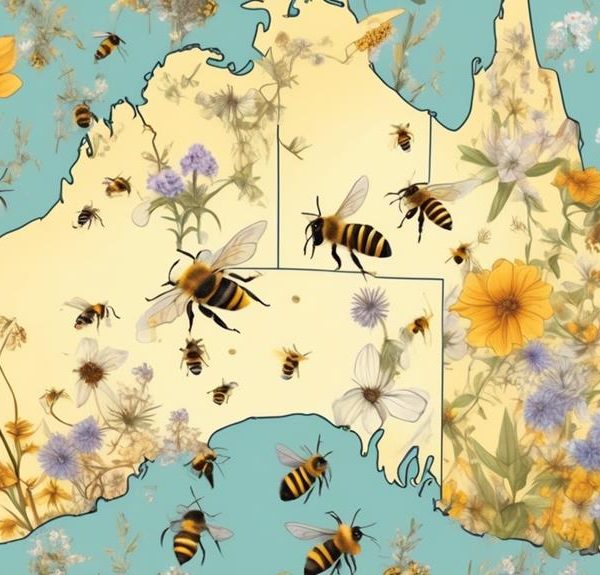Uncover the intriguing question of whether honey bees are truly domesticated or just wild insects we've learned to work with.
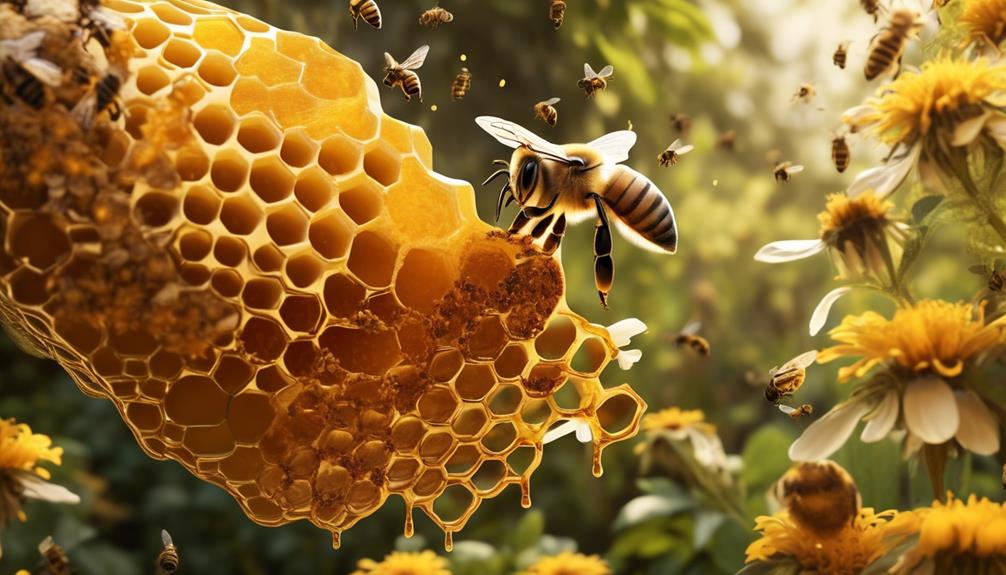
Are Honey Bees Domesticated
Just as an artist manipulates a piece of clay, you've likely seen or heard of humans shaping the behaviors of animals through domestication. But consider the humble honey bee. Unlike dogs or cows, can we truly say that these industrious insects are domesticated?
You've seen hives, watched beekeepers at work, and you've undoubtedly enjoyed the fruits of the bees' labor, whether it's honey or the countless plants they pollinate. Yet, when you dive into the world of these small creatures, you're faced with a question that might not have an easy answer.
Are honey bees truly domesticated, or are they simply wild creatures that we've learned to work with? Ponder on that as we embark on this journey of exploration and discovery.
Key Takeaways
- Honey bees have a long history of interacting with humans but are managed, not bred like other domesticated animals.
- Beekeepers play a significant role in influencing bee productivity and health by providing suitable environments and managing hive populations.
- Human actions, such as beekeeping practices and habitat management, can both benefit and harm honey bee colonies.
- Honey bees exhibit complex behaviors and traits that showcase their adaptability and resilience, despite not being fully domesticated like other species.
Understanding Domestication
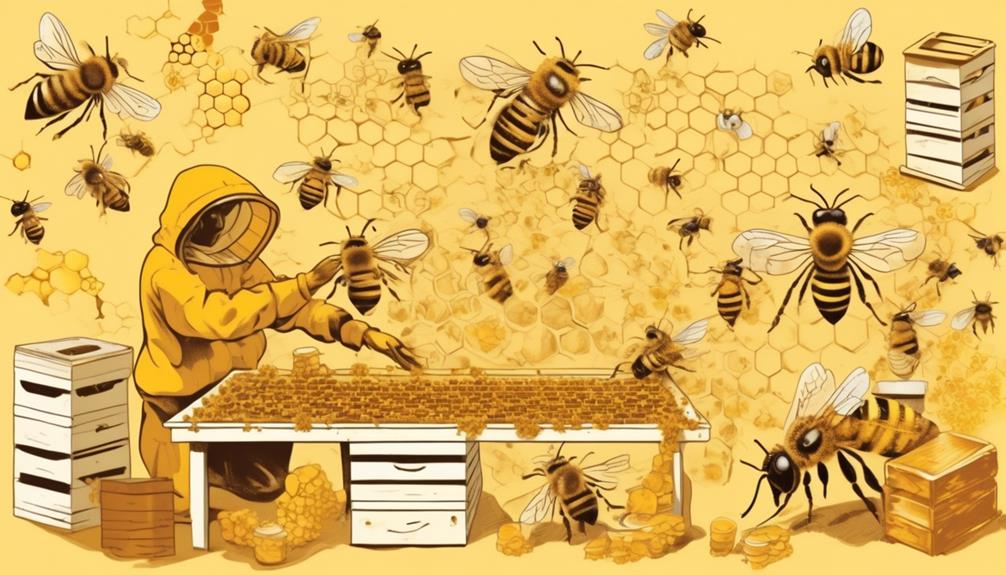
Before we delve into the question of whether honey bees are domesticated, it's crucial that you have a clear understanding of what domestication actually entails. Domestication, in its simplest form, is the process of adapting wild plants and animals for human use. This doesn't simply mean capturing a wild creature and keeping it. Rather, it's an evolutionary process, driven by humans, that transforms these entities to cater to human needs or desires.
You might be thinking, how does this process occur? Well, it all begins when humans start selecting specific animals or plants based on desirable traits. For instance, they might choose plants that yield more food or animals that are docile and easy to manage. This selective breeding over generations leads to changes in the genetic makeup of these species, making them distinctly different from their wild counterparts.
Honey Bees: Wild or Domesticated?
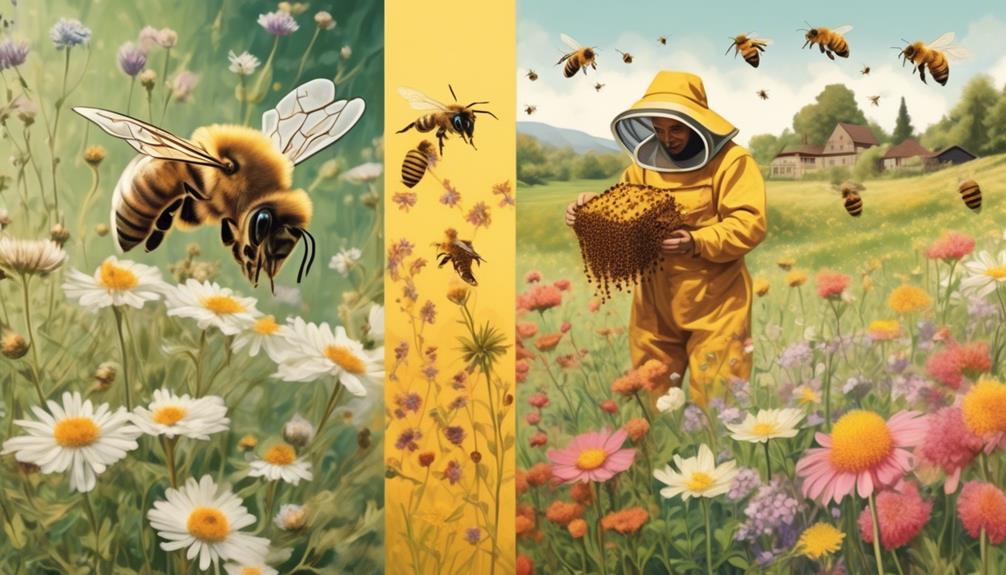
So, are honey bees truly domesticated, or do they still buzz with their wild instincts? The answer isn't as straightforward as you might think. While humans have been interacting with bees for thousands of years, using their honey as a food source and their wax for various purposes, these insects haven't been domesticated in the same way as dogs or cows.
You see, domestication involves a process of genetic modification over generations, where humans selectively breed animals to accentuate desirable traits. Bees, however, are simply managed, not bred by humans. The queen bee mates at random with drones in the wild, making it impossible for beekeepers to control their genetics.
Moreover, bees can survive without human intervention. They're capable of sourcing their own food and naturally protecting their colonies. They don't rely on humans for survival, and they still exhibit their wild behaviors, like swarming and defending their hives aggressively.
The Role of Beekeeping
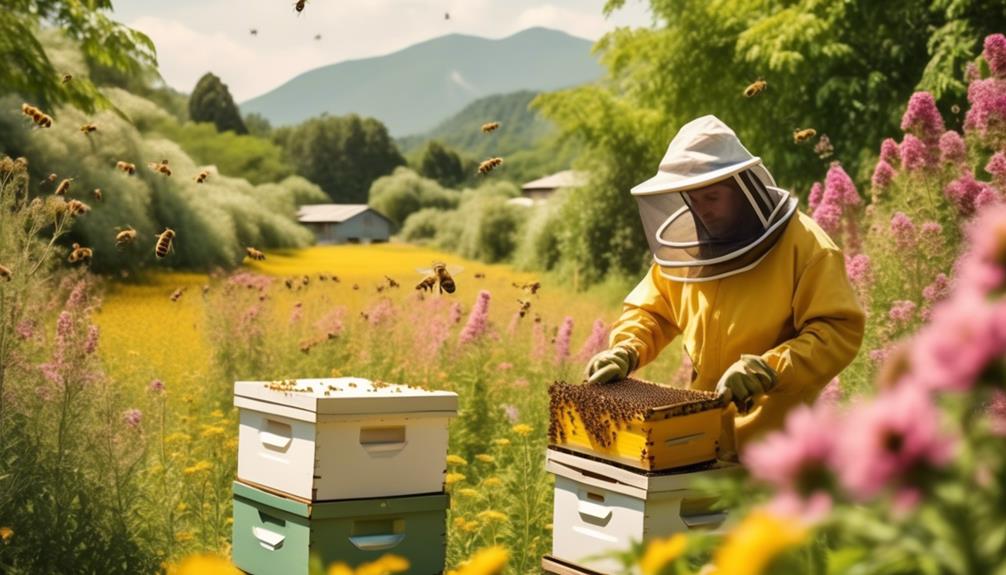
While it's clear that bees retain their wild characteristics and aren't technically domesticated, your role as a beekeeper can significantly influence their productivity and overall health. You're not just a passive observer; you're a steward, a caretaker. You can make a difference.
It's your responsibility to provide a suitable environment for your bees. This includes placing your hives in appropriate locations, ensuring they've access to diverse food sources, and protecting them from predators and harsh weather. But it doesn't stop there; you need to monitor their health, checking for diseases and pests that could devastate the entire colony.
As a beekeeper, you also manage the hive's population. You might need to split a crowded hive or introduce a new queen when necessary. Sometimes, you'll also need to intervene to prevent swarming, which can lead to a significant loss of bees.
While bees may not be domesticated in the traditional sense, your actions as a beekeeper can drastically affect their survival and productivity. You have the power to support these crucial pollinators, ensuring their continued existence and the success of your honey production. It's a role you shouldn't take lightly.
Impact of Human Interaction
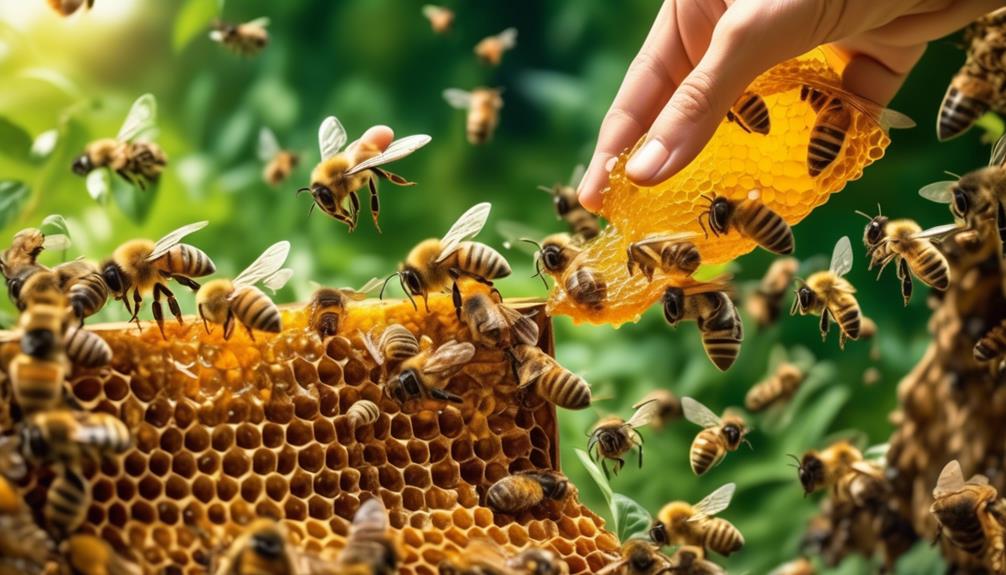
Human interaction plays a pivotal role in the well-being and survival of honey bees, shaping their existence in ways that both benefit and harm their colonies. On one hand, you're responsible for introducing beneficial elements like controlled environments and artificial feed, which can enhance their productivity. On the other hand, you also impose threats like habitat destruction and pesticide use.
Let's take a closer look at three key aspects of human-bee interaction, their potential benefits, and detriments.
Aspects | Benefits | Detriments |
|---|---|---|
Beekeeping | Colony protection, enhanced productivity | Over-exploitation, stress |
Habitat management | Preservation of natural habitats | Habitat destruction, pollution |
Pesticide use | Control of pests | Bee toxicity, Colony Collapse Disorder |
You see, your actions can create a safe haven or a living hell for these industrious creatures. Beekeeping practices need to be sustainable and environmentally friendly. Preserve their natural habitats and limit pesticide use. Remember, the survival of honey bees directly impacts your own survival. So, it's in your best interest to ensure their well-being. Understanding this intricate relationship can guide your actions towards a more sustainable co-existence.
The Mystery of Honey Bee Behavior
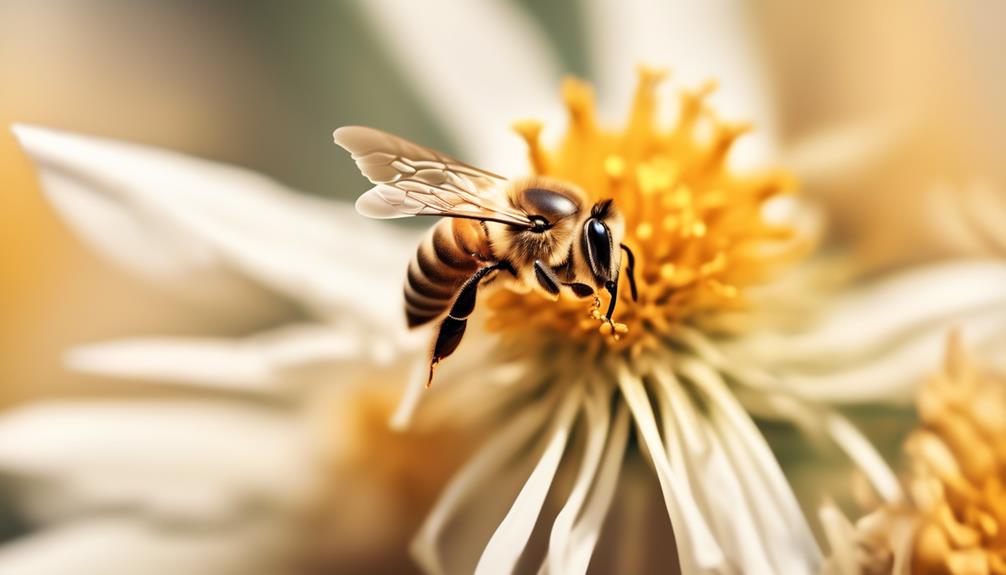
Having explored the significant impact of our actions on honey bees, let's now unravel the enigma of their behavior, a fascinating aspect that further underscores the complexity of our relationship with these industrious insects.
You've likely heard of the 'bee dance', a remarkable form of communication in which a forager bee waggles her body to indicate the location of beneficial resources to her hive mates. But that's just the tip of the iceberg. Honey bees exhibit a plethora of complex behaviors like altruistic self-sacrifice where a worker bee will sting a threat to the hive, knowing it'll die in the process.
They also have a strong sense of smell, using this to recognize their hive mates and even detect the health of their brood. Intriguingly, they're capable of associative learning, too. For example, they quickly learn to associate certain colors with food, demonstrating a level of cognition once thought exclusive to higher animals.
These behaviors, among others, show a level of sophistication that we're still striving to fully understand. They're a testament to honey bees' adaptability and resilience, highlighting just how fitting the term 'industrious' is when describing these remarkable insects.
Conclusion
So, are honey bees domesticated? Not really. Despite your diligent care and beekeeping efforts, these fascinating creatures remain fundamentally wild at heart.
Human interaction has undoubtedly influenced their behaviors and survival, but the mystery of their intricate societal structures is still largely untamed.
It's this wild spirit, coupled with their invaluable role in our ecosystem, that makes honey bees such an intriguing subject of study.

